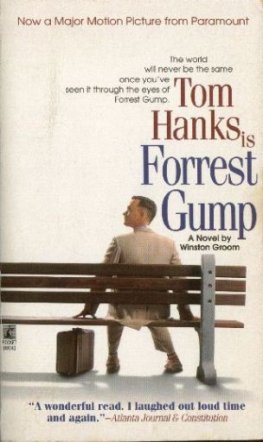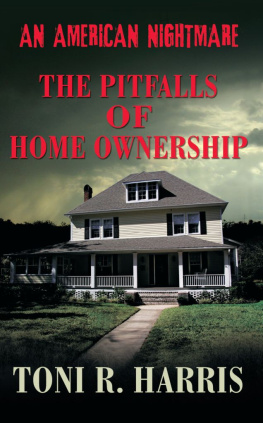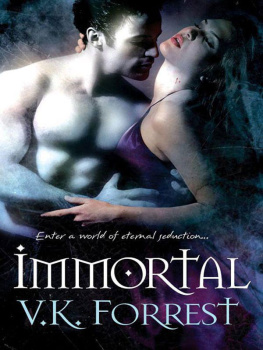Preface to the Re-issue of 2021
This book, Home Ownership: Differentiation and Fragmentation, published in 1990, provided an alternative to accounts of owner occupation that generalised about the tenures security, ideology, meaning, politics and other attributes. The book emphasised differences between tenures legal rights, the institutional framework, financing, policy, ownership and security of tenure. But, crucially, it also demonstrated that differences within owner occupation were profound. It emphasised that rather than having intrinsic characteristics the category, owner occupation, embraced a wide range of features and changed over time transitions from early, middle and late stages of development. It argued that it was misleading to generalise about home-owners being in advantageous situations when compared with tenants: whether in terms of housing quality, security, access to mortgages, tax reliefs and other assistance. It was also inaccurate to generalise about a common or shared character as middle class, suburban, associated with specific life-styles, asset appreciation, ideologies and social conditioning. Tenures, including owner occupation, were mixed and stratified and tenure status did not define or determine class, occupation, income, wealth, life-style or health.
As we set out in the book, home ownership in the UK was never solely for the richest households: the most expensive private housing was almost completely the exclusive preserve of the most affluent households but there were also home-owners in the lowest value and least attractive dwellings. Many higher income households were not owner occupiers and although the proportion of owners increased as incomes increased there were significant numbers of home-owners in every income decile. It was only a minority of households for whom owner occupied housing was a positional good that defined status and wealth. Not all of the highest income owners lived in the most expensive dwellings and not all of the most expensive dwellings were occupied by households with the highest incomes. Many owner occupiers expressed high levels of dissatisfaction with their housing and the hierarchy of demand and satisfaction with housing was affected by factors beyond tenure. Owner occupiers had not all accessed home ownership through privileged and protected public finance networks dependent on retail savings and preferential tax treatment, benefitting from direct government subsidies and a special relationship between borrower and lender. There were always class, race, income and other divides among home-owners; and divisions about living conditions that presented risks to health and safety and generational experiences. There have always been a significant group of low-income owner occupiers and of owner occupiers who did not accumulate significant wealth that they could realise or access in their lifetime and who did not bequeath significant equity. The differences between tenures and within home ownership were linked with, but not determined by, social class, occupation or income and were affected by when households were formed, lifetime events and where people lived. Even at the level of legal rights there were divisions within home ownership between outright and mortgaged home-owners and leaseholders.
It is impossible to revisit this book and agenda without reflecting on the very sad and untimely death of our colleague Ray Forrest. As we have shown elsewhere (Housing Studies https://www.tandfonline.com/doi/full/10.1080/02673037.2020.1747754) many of the themes in the book remained of interest to Ray as well as ourselves. He would have been delighted to see this book republished. The perspective advanced in Home Ownership: Differentiation and Fragmentation, was informed by research and evidence mostly referring to the UK, much of it growing out of work undertaken at the Centre for Urban and Regional Studies, an active multidisciplinary research centre at the University of Birmingham between 1966 and 2010 and continuing in a different format since then. Some of the research was innovative: looking at mortgage lending and inner-city home ownership; processes and outcomes of private as well as public sector urban management; the local impacts of policies affecting levels of home ownership and their sustainability; and issues of housing wealth and inheritance. The research drew on different disciplines, used a variety of methods and embraced historical work on building societies and the growth of owner occupation, studies of different tenures, government policies affecting levels of home ownership (especially the sale of council houses), low income owner occupation especially in older, dilapidated, inner city neighbourhoods and among households from minority ethnic groups largely excluded from better quality public sector housing, and on changes in housing over the life cycle. Rather than reporting the results of a single research project the book attempted a synthesis that drew on a succession of projects over more than fifteen years. It also drew on other work and responded to an active debate between housing researchers at the time about housing tenure. Its distinctive contribution was to represent home ownership as diverse. It was differentiated and fragmented, segmented and stratified.
Has owner occupation become more homogeneous over the last 30 years? For the UK, the answer is No. The tenure itself, the expectations of owners, the market context (and not least the mortgage market) and the way it is financed has changed. Importantly, and contrary to our expectations thirty years ago, the growth of owner occupation has been followed by decline in both the percentage of owners and within it, in the number of mortgaged home-owners. The associations between income and tenure have changed because of the decline of council housing and growth of private renting. But the outcome is still that owner occupiers own properties with different asset values and other attributes and have different incomes and other characteristics. Housing tenure is even less of a fault line than in the past. Emerging differences between places and generations make whole tenure generalisations as problematic as they ever were.














